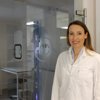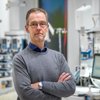Fritextsökning
Artiklar per år
Innehållstyper
-

The International Vaccine Institute’s office in Sweden is expanding
The International Vaccine Institute’s Stockholm office has been open for over a year. During the past year, training programmes and projects have been launched, says Anh Wartel, Head of the office.
-

Mathias Uhlén’s protein atlas is recognised as a global resource
The Human Protein Atlas is the first database in Sweden to be designated a Global Core Biodata Resource. According to Mathias Uhlén, this is a quality hallmark and an opportunity for additional collaborations.
-

Internationella vaccininstitutets kontor i Sverige växer
Internationella vaccininstitutets kontor i Stockholm har nu funnits i över ett år. Under året som gått har utbildningar och projekt dragits i gång, berättar Anh Wartel, chef för kontoret.
-

Petter Hartman: ”Uppenbart att något måste göras på systemnivå“
Kostnaderna för svensk hälso- och sjukvård har ökat kraftigt de senaste decennierna och prognoserna tyder inte på att något trendbrott är att vänta framöver. Hur ska vi klara finansieringen av framtidens vård? Ett svar på frågan är ökade investeringar i prevention.
-

Malmöbolag tar in kapital – utvecklar behandling som ska stoppa metastaser
Biotechbolaget WNT Research, som utvecklar cancerbehandlingar, har beslutat om en nyemission som fullt tecknad kan ge 56 miljoner kronor i kapitaltillskott.
-

The Swedish Academy of Sciences: “We have too many researchers”
Sweden does not need more researchers, but it does need better ones. According to the Royal Swedish Academy of Sciences, funding should be distributed to favour excellence.
-

Kinagodkännande och misslyckad lungcancerstudie för Astra Zeneca
Astra Zeneca har fått ett godkännande i Kina för läkemedlet Imfinzi i kombination med cellgifter vid behandling av lokal eller spridd gallvägscancer. Samtidigt kommer negativa besked från en fas III-studie med samma läkemedel för en annan indikation.
-

Astra Zeneca investerar i franskt genterapibolag
Astra Zeneca gör en ny miljardsatsning inom cell- och genterapier genom ett samarbets- och investeringsavtal med franska Cellectis. Målet är att ta fram nya behandlingar inom bland annat onkologi, immunologi och sällsynta sjukdomar.
-

Founder of Bioarctic, Lars Lannfelt, is honoured: “I want to create something for the future”
It´s like a scientist’s dream: to be the world’s first with a drug that genuinely affects one of our major diseases. Lars Lannfelt and his company Bioarctic have achieved just that, and they are thus making a significant contribution to the history of Swedish medicine. He is now being awarded the Research!Sweden Award 2023.
-

High-tech companies are increasingly focusing on health
Tech companies have been taking an interest in healthcare for many years, and this interest seems to be increasing. “It’s not a sudden shift in trend, it’s more about them advancing their positions,” says Anna Lefevre Skjöldebrand, CEO of Swedish Medtech.
-

“You discover one thing – and then 10 new questions arise”
COVID-19, diabetes, heart disease, and the impact of dog ownership on humans are just some of multitasker Tove Fall’s areas of research. However, her current focus is on her next field: the role of gut flora in human health.
-

The physician at the tech giant: “Observations in the emergency room made my mind up”
When Nasim Farrokhnia was in third grade at school in Tehran, the capital of Iran, her father gave her a book about Marie Curie, which soon became her favourite book. Perhaps her interest in science was born there and then, as science and new technology have since been a constant feature of her working life. Today, she is a Healthcare Manager in Microsoft’s Western Europe team.
-

The first drugs to slow down Alzheimer’s – but what does it mean for patients?
New treatments for early Alzheimer’s are bringing hope to thousands of patients and their families. The question is, who will get the treatment, how will the right patients be found in time, and will the healthcare system’s resources be sufficient? Life Science Sweden has spoken to Swedish researchers in Alzheimer’s who voice cautious hope but also see further challenges.
-

700 personer varslas i Region Sörmland
Region Sörmland ska minska sina kostnader med en halv miljard kronor under nästa år och har anmält ett varsel för 700 medarbetare. Regionens läkemedelscentrum är en av de verksamheter där antalet anställda kan minska.
-

Charlotta Gummeson leaves Sahlgrenska Science Park – “It feels sad and exciting at the same time”
With mixed emotions, Charlotta Gummeson will leave her position as CEO of Sahlgrenska Science Park in October. “It feels sad and exciting at the same time. I’ve been in the thick of things and part of the development for so long now, but I’m also looking forward and thinking about all the new things that there will be in a freer role,” she says to Life Science Sweden
-

Pfizer’s Paxlovid is being tested against post-COVID in a major Swedish study
In a new study conducted at the Karolinska University Hospital, Pfizer’s COVID drug, Paxlovid, is now being tested in patients with post-COVID. The study is one of the most extensive studies in the world currently being conducted for a drug for post-COVID.
-

19 medicines in Sweden are under investigation in a major EMA inquiry
19 medicines marketed in Sweden are affected by an ongoing extensive European investigation into suspected fraud at an Indian contract research organisation. Among them are medicines for HIV, epilepsy, cancer and Parkinson’s, which may be withdrawn
-

Samuel Lagercrantz: A special kind of hellishness afflicts post-COVID patients
In addition to the disease itself those suffering from post-COVID have to deal with people who try to label them as hypochondriacs, writes Samuel Lagercrantz in an editorial.
-

Heidi Stensmyren is eager for new challenges in the biotech industry
Heidi Stensmyren has served as President of the Swedish Medical Association, held a managerial position at Karolinska University Hospital and is now Medical Director at a biotech company. “I’m curious and like to have influence, so I’ve often chosen management roles,” she says.
-

“Unfortunately, we are not strong when it comes to conducting clinical trials”
The number of company-initiated clinical trials conducted in Sweden has been declining in recent years. In mid-March, a government inquiry was presented that aimed to find answers and solutions to this downward trend. One of the proposals was a stable, sustainable and funded model for collaboration.
-

”Olyckligt att vi inte kan vara starka i att genomföra kliniska prövningar”
De senaste åren har färre och färre företagsinitierade kliniska läkemedelsprövningar genomförts i Sverige. I mitten av mars redovisades en statlig utredning som hade till syfte att hitta svar och lösningar på den nedåtgående trenden. En stabil, hållbar och finansierad modell för samverkan var ett av förslagen.
-

CROs in drug development: "We use our expertise to speed up the process
Consultancy firms have become an increasingly important part of drug development. “It’s a trend and a business model that works, and we see no indication that it will change,” says Helena Lüning of the industry organisation ASCRO.
-

Studie: Klent stöd för nyttan av många nya cancerläkemedel
Nya cancerläkemedel lanseras i strid ström, men sker det för fort? Enligt en studie från Göteborgs universitet saknas det i många fall vetenskapligt stöd för att läkemedlen verkligen har önskad långsiktig effekt – trots att flera år har gått efter att de introducerades.
-

A billion-dollar acquisition makes Novo Nordisk even bigger in obesity
Danish pharmaceutical giant Novo Nordisk acquires Montreal-based Inversago Pharma, which develops treatments for obesity and diabetes.